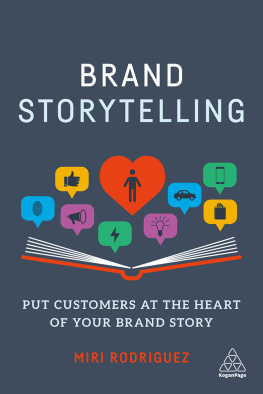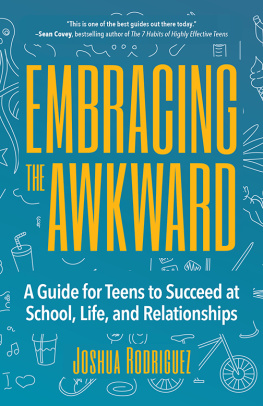Antonio Nieto-Rodriguez - Lead Successful Projects
Here you can read online Antonio Nieto-Rodriguez - Lead Successful Projects full text of the book (entire story) in english for free. Download pdf and epub, get meaning, cover and reviews about this ebook. year: 2019, publisher: Penguin Books Ltd, genre: Business. Description of the work, (preface) as well as reviews are available. Best literature library LitArk.com created for fans of good reading and offers a wide selection of genres:
Romance novel
Science fiction
Adventure
Detective
Science
History
Home and family
Prose
Art
Politics
Computer
Non-fiction
Religion
Business
Children
Humor
Choose a favorite category and find really read worthwhile books. Enjoy immersion in the world of imagination, feel the emotions of the characters or learn something new for yourself, make an fascinating discovery.
- Book:Lead Successful Projects
- Author:
- Publisher:Penguin Books Ltd
- Genre:
- Year:2019
- Rating:4 / 5
- Favourites:Add to favourites
- Your mark:
- 80
- 1
- 2
- 3
- 4
- 5
Lead Successful Projects: summary, description and annotation
We offer to read an annotation, description, summary or preface (depends on what the author of the book "Lead Successful Projects" wrote himself). If you haven't found the necessary information about the book — write in the comments, we will try to find it.
Lead Successful Projects — read online for free the complete book (whole text) full work
Below is the text of the book, divided by pages. System saving the place of the last page read, allows you to conveniently read the book "Lead Successful Projects" online for free, without having to search again every time where you left off. Put a bookmark, and you can go to the page where you finished reading at any time.
Font size:
Interval:
Bookmark:
Antonio Nieto-Rodriguez is the global champion of project management and co-founder of a global movement the Brightline Initiative. He has transformed project management into one of the central issues on every CEOs 2030 agenda. He is the creator of concepts such as the Hierarchy of Purpose, featured by the Harvard Business Review, and the Project Revolution, which argues that projects are the lingua franca of the business and personal worlds, from the C-suite to managing your career or relationships.
Antonios research and global impact on modern management have been recognized by Thinkers50 with the prestigious award Ideas into Practice and he is ranked #8 (education) and #17 (management) in the Global Gurus Top 30 list. He is part of Marshall Goldsmith 100 Coaches.
He is a pioneer and leading authority in teaching and coaching senior executives in the art and science of strategy execution and project management. He is currently visiting professor at Duke Corporate Education, Instituto de Empresa, Solvay, Vlerick, cole des Ponts and Skolkovo.
He is the author of the bestselling book The Focused Organization (Gower, 2012) and has just released his new book The Project Revolution (LID, 2019). Antonio has contributed to four other books.
Much in demand as a speaker, Antonio has presented at more than 200 conferences over the past 15 years, regularly evaluated as the best speaker. European Business Summit, Gartner Summit, TEDx and EU Cohesion Policy Conference with EU President Donald Tusk these are some of the events at which he has delivered inspirational speeches.
Antonio was the global Chairman of the Project Management Institute in 2016. Currently he is Director of the Program Management Office at GlaxoSmithKline Vaccines. Previously he worked as Head of Project Portfolio Management at BNP Paribas Fortis. Prior to that, he was Head of Post-Merger Integration at Fortis Bank, leading the largest takeover in financial services history: the acquisition of ABN AMRO. He also worked for ten years at PricewaterhouseCoopers, becoming the global lead practitioner for project and change management.
Born in Madrid, Spain, and educated in Germany, Mexico, Italy and the United States, Antonio is an economist; he has an Executive MBA from London Business School; and is accredited as corporate director by INSEADs International Directors Programme. He is fluent in five languages.
He can be reached via email: antonio.nieto.rodriguez@gmail.com.
I dedicate this book to my family. My wonderful wife and partner, Clarisse, with her unconditional support; my superb children Laura, Alexander, Selma and Lucas; my caring parents Maria Jose and Juan Antonio; and my cool brothers Javi, Iaki y Jose Miguel.
I would like to especially thank Jonathan Norman, who believed in my first book in 2012 and has been instrumental throughout the entire editorial process. Also, grateful to Stuart Crainer, from Thinkers50, for his ever-inspirational advice; and Martina OSullivan, and her team from Penguin, for her trust in asking me to author for their new business series.
Lastly, I want to dedicate this book to the millions of project managers with their hard work often unrecognized that contributes every day to make a better world.


Projects help us reach our most ambitious goals. They can help us achieve more than we think is possible. There are few ways of working and collaborating that are as motivating and inspiring as working on a project that has a higher purpose, ambitious goals and a clear deadline. What people tend to remember most clearly from their working lives are the projects they worked on. Mastering the expertise to lead a successful project is becoming an increasingly crucial element of our professional skill set.
Research shows that project-based working is rapidly growing. One report by the Project Management Institute (PMI) found that the project management labour force is expected to expand by 33 per cent during the next decade. That means 22 million more project managers and a total project management workforce of 88 million by 2027. The value of economic activity worldwide that is project-oriented will grow from $12 trillion (in 2013) to $20 trillion (forecast 2027). That means millions of projects requiring millions of project managers every year. This silent revolution is impacting not only organizations but also the very nature of work, and our entire professional lives.
The emergence of projects as the economic engine of our times is as silent as it is disruptive and powerful.
The project economy will be led by people. It will be led by people like you, tasked with the responsibility for delivering strategy and change that are likely to involve:
- new technology
- new ways of working across organizational (and geographical) boundaries, and
- new capabilities to learn, adapt and change.
You may already be a C-suite manager or a project sponsor, or you may be aspiring to this role.
Not so long ago, professional careers were made in only one or a handful of organizations. Throughout the twentieth century, most people worked for a single company, often solely in a specific domain, such as marketing or finance. However, research shows that the generation entering the workforce today are unlikely to remain with one company for extended periods of time, and retaining these workers has become a challenge for HR departments around the world. Today we are likely to work for several organizations and sometimes across numerous industries, and for part of our career we will most probably be self-employed.
LinkedIn co-founder Reid Hoffman believes that careers are now simply tours of duty, prompting companies to design organizations that assume people will only stay a few years. And data bears this out: 58 percent of companies believe their new employees will stick around less than 10 years. (LinkedIn research shows that, on average, new degree-holders have twice as many jobs in their first five post-college years now as they did in the mid-1980s.)
The growing trend in self-employment, noted by Quartz Media amongst others, may see workers needing to take on a number of roles at the same time. And when they do, they will effectively be managing a portfolio of projects. This sort of career is best approached as a set of projects in which we apply the lessons we have learned from previous jobs, companies and industries while at the same time developing ourselves for our next career move.
What does the project career mean for employers and employees?
My prediction is that by 2025, regardless of the industry or sector, senior leaders and managers will spend at least 60 per cent of their time selecting, prioritizing and driving the execution of projects. Even the worlds number one management thinker, Roger Martin, argues that 80 to 95 per cent of jobs in the senior management and corporate offices are an amalgam of projects. We will all become project leaders, no doubt about that!
In this new landscape, projects are becoming the essential model to deliver change and create value. In Germany, for example, approximately 40 per cent of the turnover and the activities of German companies are performed as projects. This is only going to increase. Indeed, similar percentages can be found in most Western economies. The figures are even higher in China and in some of the other leading Asian economies, where project-based work has been an essential element in their economic emergence. The so-called gig economy is also driven by projects. Make no mistake, we are witnessing the inexorable rise of the project economy.
Font size:
Interval:
Bookmark:
Similar books «Lead Successful Projects»
Look at similar books to Lead Successful Projects. We have selected literature similar in name and meaning in the hope of providing readers with more options to find new, interesting, not yet read works.
Discussion, reviews of the book Lead Successful Projects and just readers' own opinions. Leave your comments, write what you think about the work, its meaning or the main characters. Specify what exactly you liked and what you didn't like, and why you think so.









